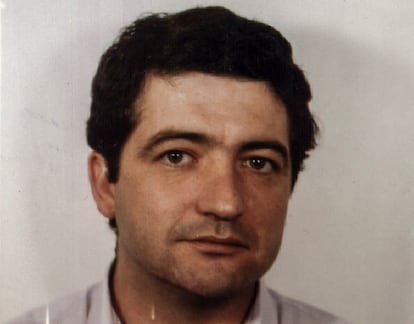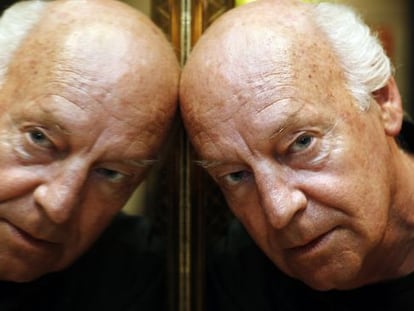Miguel Ángel Nieto, a life in defense of the word

Text in which the author advocates ideas and draws conclusions based on his or her interpretation of facts and data

Much to his chagrin , Miguel Ángel Nieto—who died at the age of 64, a brilliant journalist by nature—has become, with his death and recent years, an allegory of a time and a profession. With eagle eyes—green and brown, which seemed to see everything—he was born into such a humble family that his mother—alone—worked her way through raising her children in a poor neighborhood of Madrid. At 14, he worked as a bellboy at an American Express branch and had the good fortune to land at university when trust was the pillar of the young democracy throughout the peninsula. A close friend of Eduardo Galeano , he was part of an exquisite group that could and knew how to practice the art of leaving its mark on generations with their stories. By his side—always—Rosa Tristán, Fran Sevilla, Sofía Menendez, Alicia Luna. Then Pepe Ayala, David Corral, Monserrat Domínguez, Galiacho, Nacho Escolar, among others; among many others...
Thirsty and confident in the power of words, in 1983 he went to Nicaragua with his friend Fran Sevilla, who at the time became his brother, and they adored each other. Together they took photos, they wrote; together they said yes to a profession that would become a passion for Miguel, but also a whip . Other wars followed in Latin America, in the heart of Europe, in the Middle East. But Miguel had to experience the frustration of being part of the birth and death of newspapers like El Sol, weeklies like El Globo, the Spanish edition of Paris Match ...
She investigated Mario Conde with journalist Encarna Pérez and wrote Los c ómplices de Mario Conde , a spectacular book that is both intriguing and addictive. She also wrote Juguetes Rotos (Broken Toys). She wrote and filmed El último sefardí (The Last Sephardi), Sueño latino (Latin Dream), Bienvenidos al Paraíso (Welcome to Paradise), Hijos del cante (Children of Song), Las cortinas del humo (Smoke Curtains ). Some of her films won so many awards that, if she wanted, she could have toured the world several times, participating in festivals. She donned her boots and donned her backpack to cover the riots in Kiev, and filmed in Albania. In recent years, she used her genius to reinterpret the new era and gave talks in schools in Fuerteventura to raise awareness among young people and children about the power of mobile phones and their own words. “She gave workshops in schools to teach them how to use mobile phones constructively and critically,” explains Sofía Menéndez.
Journalism, meanwhile, became precarious to the point of making life unbearable for many freelancers. And as we all know: in the darkest pit, monsters dwell, projecting themselves onto those they love and what they love most; that's the rule. Miguel descended again and again like every professional reporter who experiences the crisis in journalism, but in his case, it sometimes led to the breaking of deep bonds. Although he always found a way to restore them with love. "It's hard to walk the tightrope," explained one of his old university classmates. "Geniuses have darkness; they are contradictory," added someone else in the final farewell.
Miguel knew he no longer had time, but he was at peace. “I'm going to sleep,” he said, and never woke up again. Perhaps when he closed his eyes, he imagined his broken wings moving through the air and stopping the bombs; that his genius—now, truly—transformed the pain of a planet wrapped in tears; perhaps he imagined he would return in every news report made with an awareness of the power each word holds.
Do you want to add another user to your subscription?
If you continue reading on this device, it will not be possible to read it on the other device.
ArrowIf you want to share your account, upgrade to Premium, so you can add another user. Each user will log in with their own email address, allowing you to personalize your experience with EL PAÍS.
Do you have a business subscription? Click here to purchase more accounts.
If you don't know who's using your account, we recommend changing your password here.
If you decide to continue sharing your account, this message will be displayed indefinitely on your device and the device of the other person using your account, affecting your reading experience. You can view the terms and conditions of the digital subscription here.
EL PAÍS






